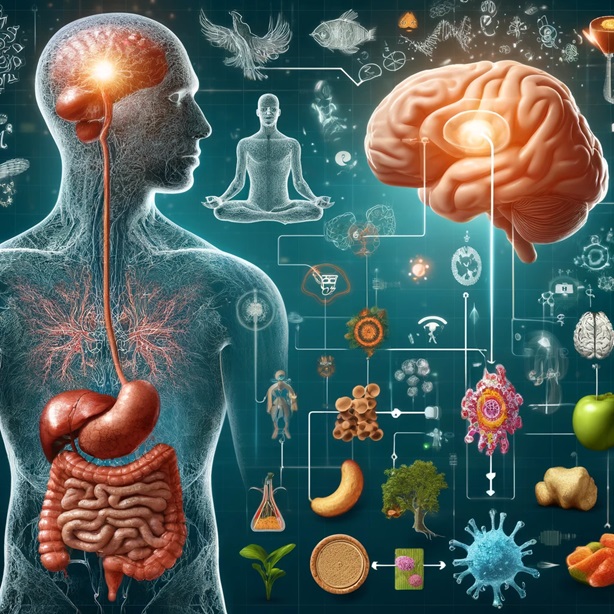Introduction to the Gut-Brain Axis
The gut-brain axis represents a vital communication network that connects the enteric nervous system of the gastrointestinal tract with the central nervous system. This bi-directional pathway involves various hormonal, immune, and neuronal communication routes that regulate a wide range of bodily functions, including several cognitive processes and emotional health. The relationship between what we consume and how our brain functions illustrates the profound impact our diet has on our mental capabilities.
Impact of Gut Microbiome on Cognitive Function
Recent advancements in medical research have emphasized the significant role that the gut microbiome plays in overall brain health, influencing functions from memory and decision-making to emotional responses. An imbalance in the gut's microbial environment, or dysbiosis, has been linked to numerous neurological and psychological disorders, such as depression, anxiety, and neurodegenerative diseases like Alzheimer's and Parkinson's.
Understanding Microbial Influences
The complex ecosystem of microbes residing in the gut produces numerous neurochemicals, which the brain utilizes to regulate various mental processes, including learning, memory, and mood. For example, a significant portion of the body's serotonin, crucial for mood regulation, is synthesized by gut bacteria.
Strategies to Enhance Gut Health for Improved Brain Function
Optimizing gut health can significantly enhance brain function. This can be achieved through various means, such as maintaining a balanced diet rich in fiber, probiotics, and prebiotics to support a healthy gut microbiome. Engaging in regular physical activity and effectively managing stress through mindfulness, meditation, or yoga can also promote the growth of beneficial gut bacteria, which supports mental health.
Current Research and Future Directions
The exploration of the gut-brain axis continues to be a rich field of study, with researchers delving deeper into how gut health affects neurodegeneration and mental health disorders. The potential for new treatment modalities, such as probiotics and prebiotics specifically targeting the gut microbiome, offers promising avenues for alleviating symptoms of brain disorders.
Conclusion
The intricate connections between the gut microbiome and brain health offer exciting new insights into how we can treat and prevent cognitive decline and enhance mental well-being. As research in this area progresses, the potential for innovative therapeutic strategies becomes increasingly apparent, underscoring the critical role of maintaining gut health for overall brain functionality and emotional stability.
